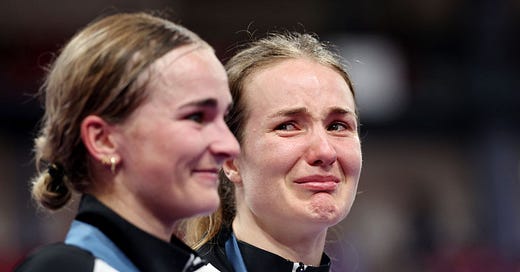Olympique Daily: A ceremonial closing
Brilliant last day sums up a great Games, PLUS: We still have to talk about that test, and a tiny bit of cricket sneaks back in.
The last day of the Olympics comes with an anticlimactic feel.
There’s always a limited Day 16 programme as they clear out the main stadium for the closing ceremony, and New Zealanders are not usually found in the medal rounds of the second-week team sport finals, nor a…
Keep reading with a 7-day free trial
Subscribe to The Bounce to keep reading this post and get 7 days of free access to the full post archives.




